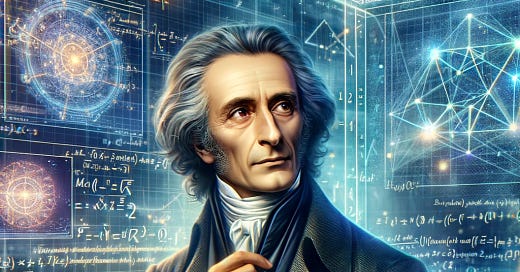Euler's Equations: Bridging the Mathematical Worlds of Past and Future
Past Forward: Historical Icons in the Digital Frontier #16
Keep reading with a 7-day free trial
Subscribe to The Cogitating Ceviché to keep reading this post and get 7 days of free access to the full post archives.





